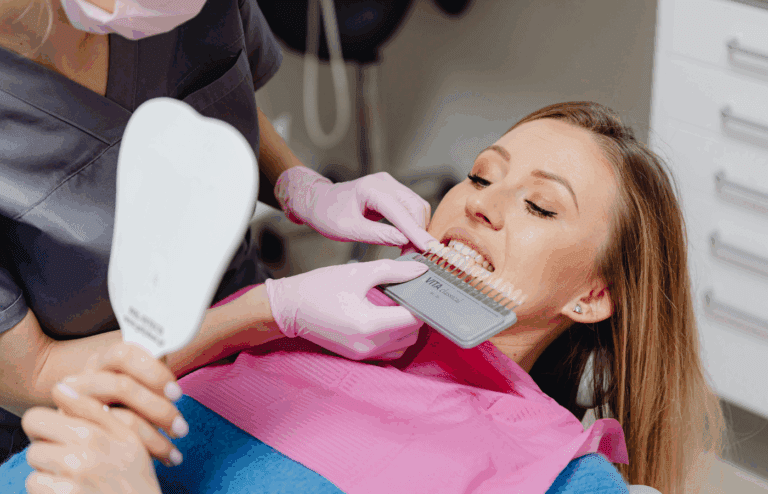Anxiety and stress are feelings everyone living in our busy modern world endures. Luckily, you may not need a drug to cope. There are many ways to help reduce anxiety naturally. Here are eight of them.

8 Ways to Relieve Anxiety Naturally
Every one of us in the modern world struggles with some form of anxiety and stress. However, for some, anxiety can become overwhelming. Those with high levels of anxiety, who turn to pharmaceutical remedies, often find the side effects of those remedies to be unpleasant or intolerable.
Luckily, many solutions don’t involve drugs. Here are eight steps you can take to help relieve your anxiety naturally.
1. Get Restful Sleep
On average, Americans get only 6.8 hours of sleep per night, according to a Gallup poll. People aged 18-64 need 7-9 hours of sleep per night, and aged 65 and up need 7-8 hours.
Sleep deprivation affects the ability to control emotions, think clearly, focus, and react. Long-term sleep deprivation has been associated with serious health conditions, including depression.
2. Get Daily Exercise
Daily exercise brings a wealth of cardiovascular, respiratory, mental health, and sleep benefits.
When it comes to anxiety, exercise helps the brain’s chemistry in the production of anti-anxiety neurotransmitters such as serotonin, endocannabinoids, gamma-aminobutyric acid (GABA), and brain-derived neurotrophic factor (BDNF). Regular exercise can help improve certain anxiety symptoms, according to the American Psychological Association (APA).
3. Reduce or Eliminate Caffeine Intake
Caffeine stimulates the central nervous system and if you consume too much, it can lead to symptoms of anxiety. Caffeine can cause many symptoms that are similar to anxiety including jittery nervousness, a rapid heartbeat, heart palpitations, increased breathing rate, increased body temperature, feelings of panic, feelings of restlessness, and feelings of uneasiness. Studies show people with panic disorder who consume caffeine have a higher risk of a panic attack and increased levels of anxiety.
Caffeine, being a stimulant, can also interfere with sleep.
Still, a moderate intake of caffeine is safe for most people. If you choose to reduce your caffeine intake, do so gradually over a few weeks to prevent your body from going through withdrawal.
4. Quit Smoking Cigarettes
A 2020 study presented strong evidence anxiety and smoking are related. In addition, consistent research findings showed people with anxiety are more likely to be smokers.
Another 2020 study suggests that nicotine and other chemicals in cigarette smoke alter pathways in the brain that are linked to anxiety and panic disorder.
5. Avoid Alcohol
Many people with anxiety choose alcohol due to its sedative qualities. However, alcohol is not as relaxing as it may seem. Studies show alcohol disrupts the body’s natural ability to sleep, and may further diminish sleep quality over time. Good sleep is essential to combating anxiety.
A 2019 study confirmed a link between anxiety disorders and alcohol use.
Heavy alcohol use interferes with the balance of neurotransmitters, creating an imbalance that may lead to certain symptoms of anxiety.
When quitting alcohol, be aware that anxiety may temporarily increase, but can improve in the long run.
6. Eat a Balanced Diet
Unhealthy food may cause mood changes in some people. This includes processed foods containing artificial flavorings, artificial coloring, and preservatives. A high-sugar diet may also impact temperament. People suffering from low blood sugar levels or dehydration can also find their temperaments impacted.
Consume a diet that is balanced and rich in complex carbohydrates, fruits and vegetables, and lean proteins. Stay hydrated. Eliminate processed foods.
7. Try Deep Breathing Exercises
People who suffer from anxiety often engage in shallow, fast breathing. One reason people often turn to smoking is that it helps them slow down their breathing. There’s a better way. Engage in deep breathing exercises in which you deliberately take slow, even, and deep breaths. This restores a normal breathing pattern, helping to reduce anxiety.
8. Practice Mindfulness and Meditation
The practice of mindfulness is where we try to be fully focused on where we are and what we are doing at the present moment. It’s a time to shut out obsessive thoughts, and worry, and focus on ourselves and our bodies — to reduce anxiety naturally.
Mindfulness meditation is a way of training your brain to slow down its racing thoughts and let go of any negativity, calm your mind, and relax your body.








